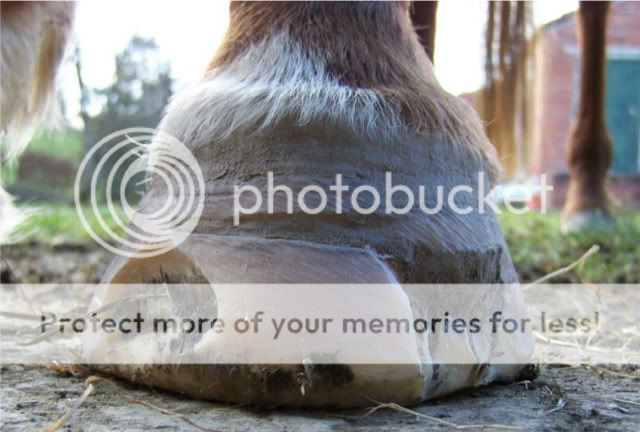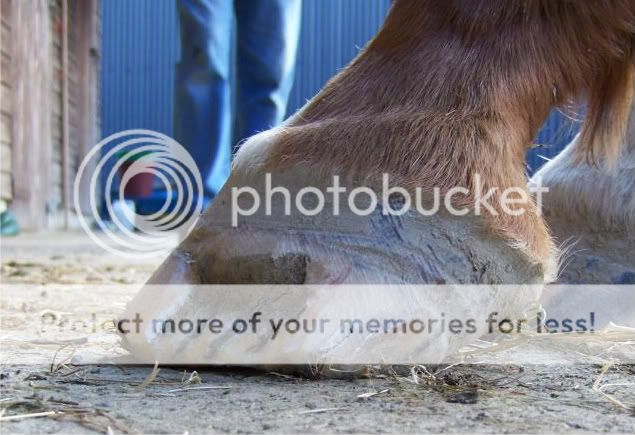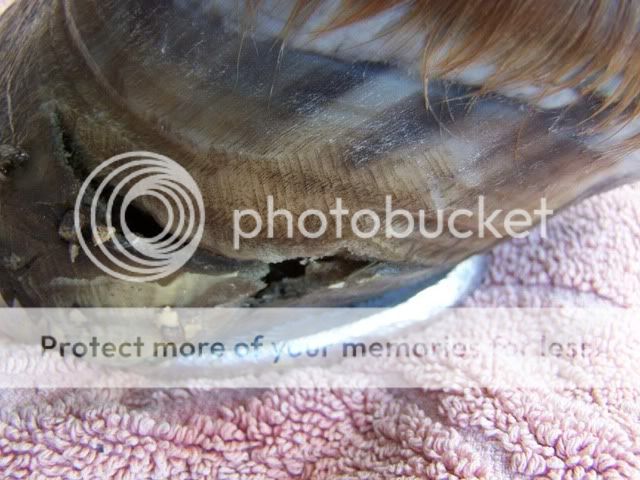PaulnasherryRocky
Well-Known Member
I recently had the vet out as my horse was 2/10ths lame when put on a circle on hard ground. A week of boxrest and bute made no difference, so we did nerve blocks - pain is in left front foot.
We xrayed the area to find nothing bone related, other than him being quite flat footed.
I now need to have an MRI, vet is suspecting collateral ligament damage.
Until then, vet suggested box rest for approx.12 weeks, wedges at the back of his shoes to bring the angle back to 10 degrees and relieve any pressure. Also gave me danilon and suggested in hand walks (or ridden in walk, but I can't do that as I know he will jog)
I've contacted my farrier and sent him the xrays, he reckons he isn't flat footed enough to warrant wedges, and to just keep his usual shoes.
I have got a second opinion from another farrier, who also agrees that he isn't flat footed enough for wedges, but I should go for some lateral support if collateral ligament damage is suspected, and to turn away until next year rather than the 12 weeks box rest as suggested by vet.
Vet has said don't treat for collateral ligament damage until it's confirmed with MRI.
So, three different opinions from 3 trusted professionals -
I hate the idea of him being on box rest for that long, he isn't the type to run around and is usually on 24/7 turnout at this time of year - we have a small paddock he could be turned out in alone - but I will do whatever is best for him to recover!
So..what am I supposed to do?!
(Thank you for reading if you got to the end!)
We xrayed the area to find nothing bone related, other than him being quite flat footed.
I now need to have an MRI, vet is suspecting collateral ligament damage.
Until then, vet suggested box rest for approx.12 weeks, wedges at the back of his shoes to bring the angle back to 10 degrees and relieve any pressure. Also gave me danilon and suggested in hand walks (or ridden in walk, but I can't do that as I know he will jog)
I've contacted my farrier and sent him the xrays, he reckons he isn't flat footed enough to warrant wedges, and to just keep his usual shoes.
I have got a second opinion from another farrier, who also agrees that he isn't flat footed enough for wedges, but I should go for some lateral support if collateral ligament damage is suspected, and to turn away until next year rather than the 12 weeks box rest as suggested by vet.
Vet has said don't treat for collateral ligament damage until it's confirmed with MRI.
So, three different opinions from 3 trusted professionals -
I hate the idea of him being on box rest for that long, he isn't the type to run around and is usually on 24/7 turnout at this time of year - we have a small paddock he could be turned out in alone - but I will do whatever is best for him to recover!
So..what am I supposed to do?!
(Thank you for reading if you got to the end!)



